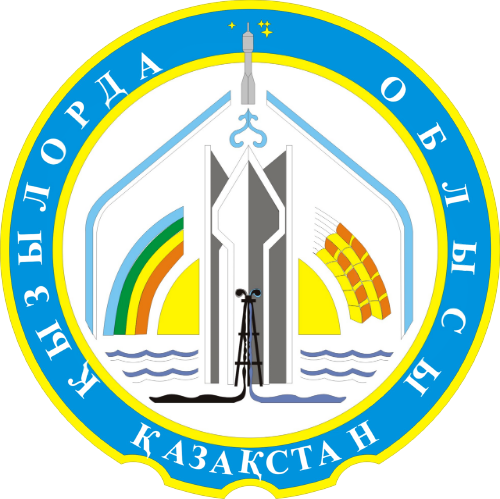Doing a Business

Tax
Taxes shall mean mandatory monetary payments to the budget established legally by the state in certain amounts and unilaterally, except for the cases stipulated by the Tax Code of the Republic of Kazakhstan (TC RK), irrevocable and gratuitous.
The taxes and payments applicable in the Republic of Kazakhstan are as follows:
|
TAXES |
MANDATORY PAYMENTS TO THE BUDGET |
|
1) corporate income tax; 2) individual income tax; 3) value added tax; 4) excise taxes; 5) rental tax on exports; 6) special payments and taxes of subsoil users; 7) social tax; 8) vehicle tax; 9) land tax; 10) property tax; 11) gambling tax; 12) unified land tax |
1) stamp duties; 2) state fees; 3) use charges for the use of: licenses to carry our certain types of activities, land plots, water resources of surface sources, negative impact on the environment, the animal world, forest use, specially protected natural areas, radio frequency spectrum, provision of long-distance and (or) international telephone communication, as well as cellular communication, placement of outdoor (visual) advertising and digital mining.
|
In order to apply international treaties, value added tax and excise taxes are recognized as indirect taxes.
The taxes and mandatory payments to the budget to be collected at rates set forth below.
|
№ |
Tax |
Taxable objects and tax rates |
Legal framework |
Taxpayers |
|
1. |
Corporate income tax |
1) Taxable incomes – 20%; 2) Incomes taxable at the source of payment – 15%; 3) Net income of a non-resident legal entity operating in the Republic of Kazakhstan through a permanent establishment – 15%.
|
Articles 222,223, 313, 646 and 652 of the TC RK |
1) domestic legal entities (residents) of the Republic of Kazakhstan except for the state institutions and state educational institutions of secondary education; 2) foreign (non-resident) legal entities with permanent establishment in Kazakhstan or generating incomes from sources in the Republic of Kazakhstan. |
|
2. |
Individual income tax |
10 % |
Articles 316, 318, 320 TC RK |
Employed individuals and those that apply self-taxation regime. |
|
3. |
Value added tax |
Taxable turnover – 12% Taxable imports – 12%
|
Articles 367, 368 82, 83 |
1) resident legal entities; 2) non-residents that carry out activity in Kazakhstan through a branch, representative office; 3) private entrepreneurs, professionals with private practice, except for the state institutions and structural subdivisions of resident legal entities; 3) taxpayers that apply a special tax regime for peasant or farm enterprises.
Threshold size of the taxable incomes that triggers mandatory registration for the VAT is 20,000 monthly assessment indices (KZT 3,450), In all other cases the registration for the VAT is voluntary. |
|
4. |
Excise taxes |
The excisable goods are: 1) all kinds of alcohol; 2) alcoholic beverages; 3) tobacco products; 4) products with heated tobacco, nicotine-containing liquids for use in electronic cigarettes; 5) gasoline (except aviation), diesel fuel, gasohol, benzanol, nefras, a mixture of light hydrocarbons, ecological fuel; 6) motor vehicles designed to transport 10 or more people with an engine capacity of more than 3000 cubic centimeters, except minibuses, buses and trolleybuses; 7) crude oil, gas condensate; 8) alcohol-containing medical products registered as a medical product. Bids Excise tax rates are established in the absolute amount per unit of measurement in kind |
Articles 460 – 463 TC RK |
The payers of excise taxes are individuals and legal entities that: 1) produce excisable goods on the territory of the Republic of Kazakhstan ; 2) import excisable goods to the territory of the Republic of Kazakhstan; 3) carry out wholesale and retail sales of gasoline (except aviation) and diesel fuel on the territory of the Republic of Kazakhstan; 4) carry out the sale of confiscated or ownerless goods, inherited by the right of inheritance to the state and gratuitously transferred to the ownership of the state for which the excise tax on the territory of the Republic of Kazakhstan was not previously paid; 5) carry out the sale of the estate of excisable goods specified in Article 462 of the Tax Code of the Republic of Kazakhstan, and for which the excise tax on the territory of the Republic of Kazakhstan has not been previously paid; 6) assemble (complete) excisable goods prescribed in subparagraph 6) of Part one of Article 462 TC RK; 7) individuals importing excisable goods from the territory of the member states of the Eurasian Economic Union for the purposes of entrepreneurial activity.
|
|
5. |
Rental tax on exports |
Taxable objects: volume of crude oil and crude oil products that is sold for export Rates Up to $ 20 per barrel – 0%; Up to $ 200 per barrel – 32% |
Articles 713 – 719 TC RK |
Individuals and legal entities that sell crude oil and crude oil products for export. |
|
6. |
Special payments and taxes on subsoil users |
Special payments and taxes of subsurface users include: 1) subscription bonus; 2) payment for reimbursement of historical costs; 3) alternative tax on subsurface use; 4) royalties; 5) the share of the Republic of Kazakhstan in the production section; 6) mineral extraction tax (MET); 7) excess profit tax. Taxable objects: activities carried out within the framework of a production sharing agreement (contract) |
Articles 720-773 |
Subsurface users, including subsurface users operating under production sharing agreements (contracts).
|
|
7. |
Social tax |
Taxable objects: 1) for professionals with private practice - the number of employees, including the payers; 1) For other persons – expenses of employers for the staff employees Rates from January 1, 2018 - 9.5 %; from January 1, 2025 - 11 %.
|
Articles 482, 484, 485 TC RK |
1) individual entrepreneurs;; 2) professional with private practice; 3) legal entities-residents of the Republic of Kazakhstan, unless otherwise established by paragraph 3 of this article; 4) non-resident legal entities operating in the Republic of Kazakhstan through permanent institutions; 5) non-resident legal entities operating through a structural subdivision that does not lead to the formation of a permanent institution. |
|
8. |
Vehicle tax |
Taxable objects Vehicles, with the exception of trailers, registered and (or) registered in the RK. Tax rates The vehicle tax rates are set out in Article 492 of the Tax Code of the Republic of Kazakhstan. |
Section 13 TC RK |
1) Individuals having ownership rights for the taxable; 2) Legal entities that have taxable objects on the right of ownership, economic management or operational management |
|
9. |
Property tax |
Taxable objects Buildings, structures, assets, except for, inter alia, public land plots, buildings and structures that are under conservation by decision of the Government of RK. Tax rates: Individuals: The tax rates are connected with the value of objects and they are established in the TC RK. Legal entities:
0.1% for certain categories of taxpayers under Article 521 TC RK |
Section 15 TC RK, articles .517-525 |
1) legal entities that have an object of taxation on the right of ownership, economic management or operational management in the territory Kazakhstan; 2) individual entrepreneurs who have an object of taxation on the right of ownership in the territory Kazakhstan; 3) a concessionaire who has the right of ownership, use of a taxable object, which is the object of a concession in accordance with the concession agreement; 4) Other persons specified in Article 518 of the Tax Code. |
|
10. |
Gambling tax |
Taxable objects: 1) gaming table; 2) slot machine; 3) totalizator cash register; 4) electronic cash register of the totalizator; 5) bookmaker's cash register; 6) the electronic cash register of the bookmaker
Rates: From 1,660 to 3,000 times the size of the monthly calculation index. |
Section 16 TC RK Articles.534-542 |
Legal entities that provide services: casinos; slot machine halls; betting shops; bookmakers.
|
|
11. |
Land tax |
Taxable objects: A land plot (with shared ownership of a land plot - a land share), except for the public land plots with public state highways network Rates: The land tax rates for the agricultural land are set per hectare and differentiated by soil quality. The basic tax rates for the lands of human settlements except for the private houses lands are set per square meter of area in the sizes specified in TC RK. |
Article 498, 500, 503-510 TC RK |
The land tax is paid by the persons who have taxable objects on: 1) the right of ownership; 2) the right of permanent land use; 3) on the right of primary gratuitous temporary land use. |
|
12. |
Unified land tax |
Taxable objects Incomes from sale of agricultural products, products of processing of agricultural products of its own production, with the exception of activities for the production, processing and sale of excisable goods during the tax period. Rates 0.5 % to the taxable object o for the reporting tax period. |
Article 702-707 TC RK |
Peasant and farm enterprises which apply special tax regime
|

Stamp Duties
A stamp duty is a payment to the budget levied on the following legally significant actions, inter alia issuance of documents (their copies, duplicates) committed by the authorized state bodies or officials:
1) Filing administrative lawsuits with the court, statements of claim, statements of special claim proceedings, statements (complaints) in cases of special proceedings, applications for the issuance of a court order, applications for the issuance of a duplicate of a writ of execution, applications for the issuance of writ of execution for the enforcement of arbitral awards and foreign courts, petitions for the cancellation of an arbitration award, applications on re-issuance of copies of judicial acts, writ of execution and other documents;
2) notarial actions, as well as issuance of copies (duplicates) of notarized documents;
3) Register acts of civil status, as well as issuance for individuals citizens of certificates and repeated certificates of registration of acts of civil status and certificates in connection with the modification, addition, correction and restoration of records of acts of civil status;
4) Register documents on departure from the Republic of Kazakhstan for the permanent residence;
5) Issuance invitations for foreigners and stateless persons to enter the Republic of Kazakhstan on private business, receiving and approving invitations of receiving persons for issuing visas of the Republic of Kazakhstan;
6) Issuance, restoring or extending visas on the territory of the Republic of Kazakhstan to foreigners and stateless persons for the right to leave the Republic of Kazakhstan and enter the Republic of Kazakhstan;
7) Register documents on acquisition of citizenship of the Republic of Kazakhstan, restoration of citizenship of the Republic of Kazakhstan and termination of citizenship of the Republic of Kazakhstan;
8) Issuance (reissuance) a hunter's certificate (a duplicate of a hunter's certificate);
9) Issuance of:
- permits for import into the territory of the Republic of Kazakhstan, export and (or) re-export from the territory of the Republic of Kazakhstan of flora objects, their parts and derivatives subject to the Convention on International Trade in Endangered Species of Wild Fauna and Flora;
- permits for import into the territory of the Republic of Kazakhstan, export and (or) re-export from the territory of the Republic of Kazakhstan of animal species subject to the Convention on International Trade in Endangered Species of Wild Fauna and Flora;
- conclusion (authorization document) for the export from the customs territory of the Eurasian Economic Union of certain wild plants and wild medicinal raw materials, including rare and endangered;
- conclusion (authorization document) for the export from the customs territory of the Eurasian Economic Union of wild animals, including rare and endangered;
10) Issuance of identity documents, with the exception of the refugee certificate (from January 1, 2022);
11) Issuance of permits for the acquisition, storage or storage and carrying, transportation of civilian, service weapons and ammunition to it;
12) Issuance resolutions on import into the territory of the Republic of Kazakhstan and export from the territory of the Republic of Kazakhstan of civil, service weapons and ammunition to it;
13) Register and re-register each unit of civil, service weapons of individuals and legal entities (with the exception of cold hunting, signal weapons, mechanical sprayers, aerosol and other devices equipped with tear or irritating substances, pneumatic weapons with muzzle energy not exceeding 7.5 J and caliber up to 4.5 mm inclusive);
14) Apostille by the state bodies authorized by the Government of the Republic of Kazakhstan on official documents made in the Republic of Kazakhstan, in accordance with an international treaty ratified by the Republic of Kazakhstan;
15) Issuance of driver's licenses, tractor driver's licenses, certificates of state registration of motor vehicles;
16) Issuance of state registration license plates (duplicates), except for the state registration license plates for a car that were stored for a period not exceeding the period established for their storage by the legislation of the Republic of Kazakhstan on the registration of state registration license plates (from January 1, 2023);
17) Commission by the authorized state body in the field of intellectual property of legally significant actions provided for in Article 614 of the Tax Code of the Republic of Kazakhstan;
18) Issuance of a certificate of admission to the implementation of international road transport of goods and its duplicate;
19) Issuance of a seafarer's identity card, a nautical record of Kazakhstan and a professional diploma;
20) Issuance of a permit for the purchase of civil pyrotechnic substances and products with their use;
21) Issuance of a permanent residence permit in the Republic of Kazakhstan.
2. The state fee rates are determined in the amount multiplied by the established monthly calculation index as of the date on the date of payment of the state fee or as a percentage of the amount of the claim, unless otherwise established by the TC RK.

State Fees
The state fees are one-time mandatory payments to the budget collected by tax authorities, local executive bodies and other authorized state bodies for the:
1) registration actions;
2) issuance of permits or their duplicates.
Permits shall mean consents issued by the authorized body for regulation, control and supervision of the financial market and financial organizations and a document confirming the residence of a foreigner or a stateless person who is an investment resident of the Astana International Financial Center, issued by tax authorities in the manner and cases established by the legislation of Kazakhstan, not related to permits..
Registration actions shall mean the following actions performed by the authorized state bodies and authorized organizations in the field of civil aviation in accordance with the procedure established by the legislation of the Republic of Kazakhstan:
1) state registration of legal entities and registration of branches and representative offices, as well as their re-registration;
2) the state registration of the pledge of movable property and the mortgage of the vessel, as well as the state registration of the irrevocable authority to de-register and export the aircraft;
3) state registration of space objects and their rights;
4) state registration of vehicles, as well as their re-registration;
5) state registration of medicines and medical devices, as well as their re-registration;
6) registration of a TV and radio channel, a periodical, an information agency and an online publication.
The state fees are levied on the issuance of the following documents or their duplicates by the relevant authorized state bodies, tax authorities, local executive bodies and an authorized organization in the field of civil aviation pursuant to the procedure established by the legislation of the Republic of Kazakhstan:
1) licenses to engage in certain types of activities;
2) permits, consents for participants of the banking and insurance markets;
3) permits issued for the passage of motor vehicles on the territory of the Republic;
4) permits for the use of the radio frequency spectrum by television and radio broadcasting organizations;
5) certificates issued by an authorized organization in the field of civil aviation,;
6) permits for attraction of foreign labor to the Republic of Kazakhstan (its extension);
7) a document on recognition the status of a foreigner or a stateless person as an investment resident of the Astana International Financial Center (from January 1, 2021).

Use Charges
Use charged are established for the use of land plots, water resources of surface sources, emissions into the environment, the animal world, forest use, specially protected natural areas, radio frequency spectrum, provision of long-distance and (or) international telephone communication, as well as cellular communication, navigable waterways, placement of outdoor (visual) advertising.

Indicators
The following indicators are established for the 2023 year, since 1 January:
1) the minimum wage is KZT 70,000;
2) the minimum amount of the state basic pension payment is KZT 24,341;
3) the minimum pension amount is KZT 53,076;
4) monthly calculation index for calculating benefits and other social benefits, as well as the application of penalties, taxes and other payments in accordance with the legislation of the Republic of Kazakhstan – KZT 3,450;
5) the amount of the subsistence minimum for calculating the amount of basic social benefits – KZT 40,567.

























